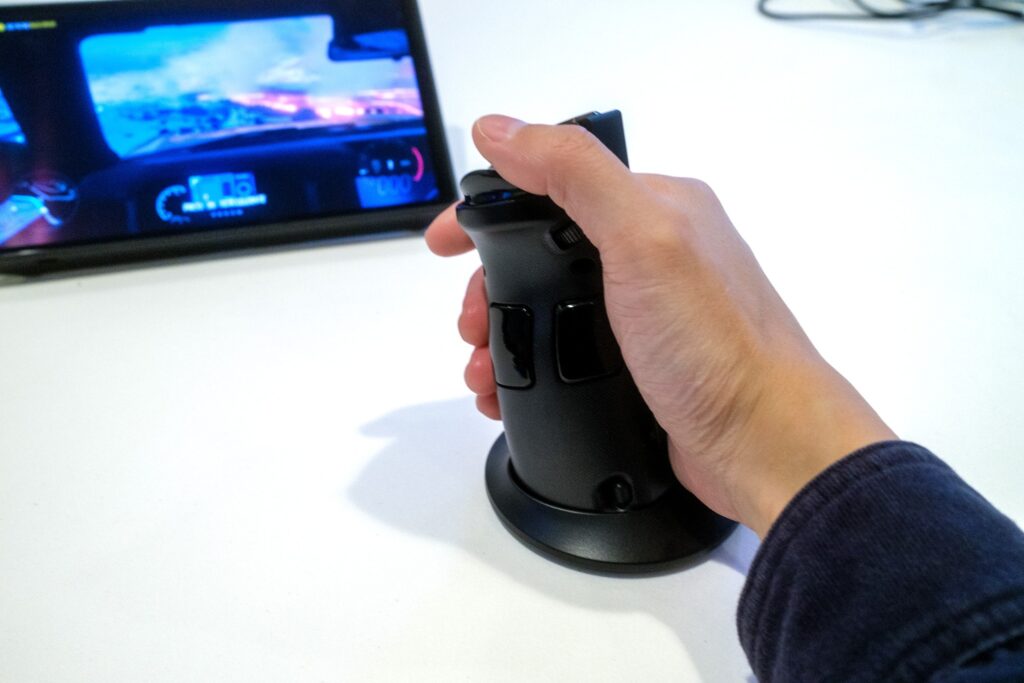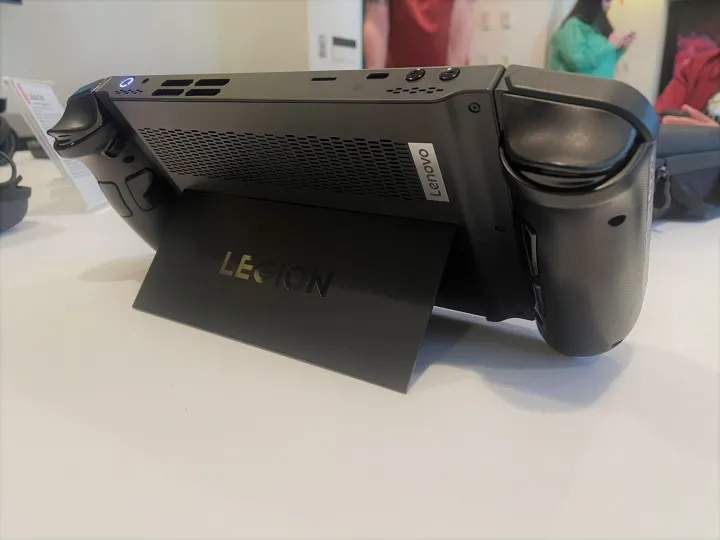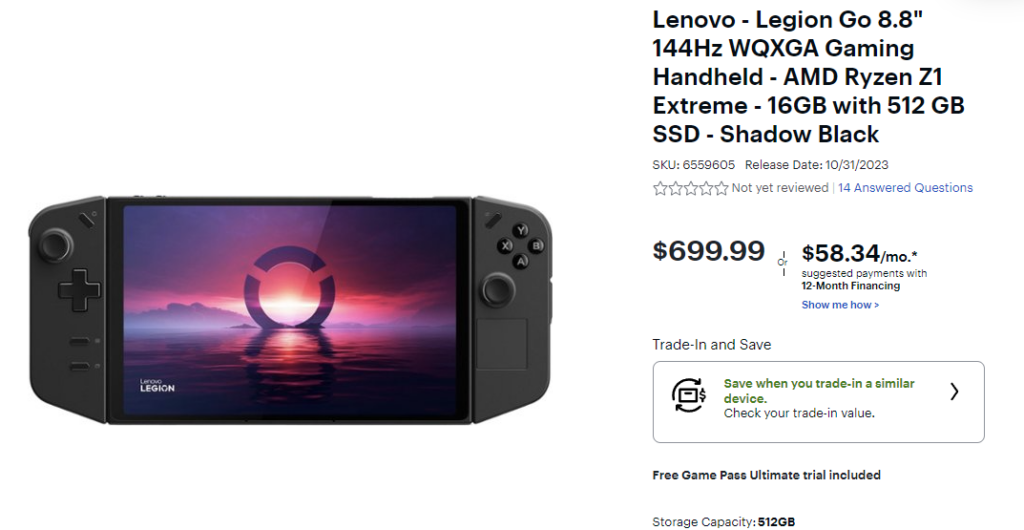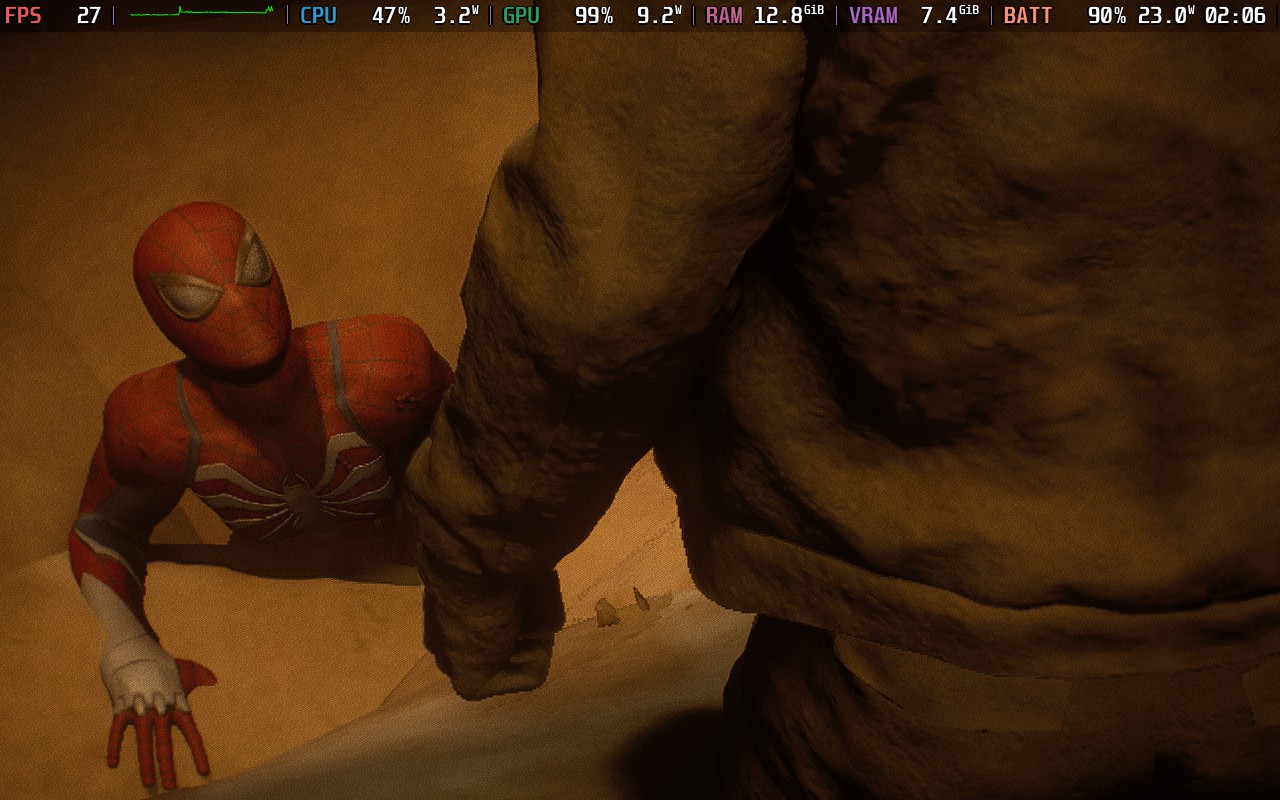Handheld PCs may have been around for a couple of years, with devices like the original GPD WIN going back to 2016, but it wasn't until last year that the handhelds became popular. This was, in large part, due to Valve with the Steam Deck. The well-known company jumped head first into the market, not sure where they would land, but because of the solid hardware and affordable price, they made waves. With it showing dominance, it was bound to attract new competitors, and it did.
In June of this year, ASUS released the ROG Ally. This device was meant to compete and attempt to eclipse the Steam Deck with its boosted power, 120hz refresh rate, Variable Refresh Rate (VRR) support, and lighter build. While it has its pros and cons, the Ally did a great job showing the Deck can have competition, even at a slightly higher price point.
Recently, I have been seeing some brand new devices coming out that, while matching the Ally in power, are pushing the price point back upwards without offering something extremely different to match it. At first, I was worried that this could mean the market would be moving to a more expensive price point, making it harder for possible adopters to justify the investment. And then we have the Lenovo Legion Go, whose introduction has quelled a lot of those fears and is helping to solidify a more affordable price point while encouraging new features and creativity.

Even if it doesn't seem like it, the Lenovo Legion Go is doing a lot to stabilize the handheld PC market, which I feel will only benefit it in the long run! So what exactly is it helping, you ask? Well, there are a couple of different aspects:
Variety/Features
The Lenovo Legion Go may have a lot of similarities with its competitors, like its form factor and having the same APU that the ROG Ally has, but there are a plethora of differences to make it stand out. We have the obvious ones like the detachable controllers, 144hz screen, and extra back and side buttons that can all be configured, but there are also smaller features like a mouse scroll wheel, compatibility with the Legion Glasses, and FPS mode that uses the controller kinda like a joystick.

This is significant because the device having so many unique features will push other companies to think out of the box and push the limits on what their hardware will be capable of. This encourages varying devices that will cater to what some want while others may not. Speaking of which...
A Specific Focus
As I covered in my last Lenovo Legion Go article, I feel the device is going to be best when playing docked. It has similar power to the ROG Ally, thanks to the Z1 Extreme processor inside, but it has certain things that make me feel it will be best for stationary play. These include the sturdy-looking stand, lower battery for the size, USB-C ports on the top and bottom, larger weight, and a bigger screen. All of these seem like it makes the device lean towards a specific stance, which I think is great.

This is significant so those who are interested can have a choice based on how they would use the device primarily, without completely sacrificing much. Yes, the Legion Go is not great for portable play, but it can still be played in portable form when desired.
The Price Point
This is probably the aspect I am most excited about is the price point. The Legion Go is releasing all of these extra/different features for the same price as the ROG Ally, $699. It is using the same APU, Z1 Extreme, and slightly faster RAM but has a bigger screen, larger resolution, and more. It doesn't have VRR, which is a shame, but it does have so much else to offer at no extra cost.

Hitting a similar price point means other devices and companies are more likely to compete with it. This is due to more handhelds being offered at this price, so other companies will want to either match it or go lower to appeal to more people. This will, in turn, mean more creative devices that can end up doing the same, but for a price on par or below.
Lenovo Making a Handheld
When ASUS started entering the ring with a device, I was shocked. ASUS is a big brand in PC gaming, and while Valve is well-known in the PC gaming space, ASUS makes actual desktop and laptop hardware. Seeing them enter gave me hope that similar companies will do the same. Lenovo is a similar company, so seeing them make a device that is very on-par with ASUS's offering instilled a lot of confidence in the Handheld PC space.
This could spark other companies, like Microsoft, to feel more confident about entering the ring. And if more well-known companies do this, more will take the leap to handheld PCs, which could give developers more drive to optimize for handhelds. If enough people adopt and join the ecosystem, we could start seeing AAA developers go out of their way to utilize upscaling well or optimize their games for more limited hardware. If enough Windows handhelds are adopted, this could lead Microsoft to optimize Windows OS for the form factor, too.
So What Does the Future Hold?
Honestly, I can't say. All I know is the future seems bright. More handhelds are coming, and with the Lenovo Legion Go being so wildly different yet still the same $699 price, we could see handhelds get cheaper while they grow in power with new APUs, utilize new and interesting features, and find ways to be competitive with each other.
Right now, we are at the beginning of a brand new PC gaming market that provides a way to enjoy the largest library of games in existence. Every PC game is compatible, emulators allow backlogs from classic consoles to be completed, and with PlayStation starting to bring their titles over, PC is THE place to be for gaming. The Lenovo Legion Go is definitely a great deal for what it is, and we can't wait to see where it evolves from here.
You can pre-order the Lenovo Legion Go now for $699 at Best Buy, or if you want to upgrade your internal storage to 1tb, you can get it for $749. I would go for the 1tb option myself, $50 extra for double the storage is a fantastic deal, but there's no wrong choice here.
If you enjoyed this article, check out the rest of the content on SteamDeckHQ! We have a wide variety of game reviews and news that are sure to help your gaming experience. Whether you're looking for news, tips and tutorials, game settings and reviews, or just want to stay up-to-date on the latest trends, we've got your back.








